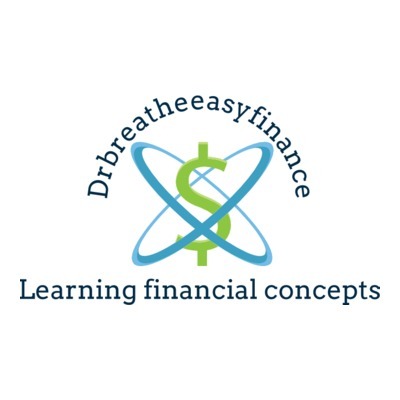In adulting 101, we learn that success in life is as simple as following a few memes. As if the only thing standing between you and conquering the world is believing in yourself and the application of a Dale Carnegie quote.
With no disrespect to Buzzfeed and their 27 simple ways to get your life together, memes are not going to pay the bills. While I’m at it, the real world doesn’t care how special your mom thinks you are or that you have a fancy business school degree. If the economy heads into a recession or the market takes a nosedive into the bear market, you may go from being a valued “family member” at work to an expendable line item.
Sometime after adulting 101, we learn that life’s hard, so you better work on your options. Now, before you think this is some tough-love approach, let me preface that I don’t care if you made mistakes in the past. We have all made mistakes, lots and lots of them.
However, New Years’ resolution time is just around the corner, and every year millions of American pledge to save more or get out of debt. Unfortunately, most fall short of their resolutions, so here is the ultimate guide to financially getting your life together. (Finally.)
Table of Contents
How to Get Your Life Together (Financially)
1. Budget
I understand that the need to budget isn’t a groundbreaking discovery. Personal finance bloggers have beaten the subject to death. A budget, even if it’s just a crude listing of all your expenses and income on a piece of scrap paper, is essential to get your finances in order.
You do not need to use a fancy software program or excel budget template, although they do help. Grab a notebook or some paper, gather up all your monthly bills, and write down how much you spend each month.
Don’t cheat yourself, guess, or play games with rounding and estimates. Most people find that when they write out a realistic budget, they are surprised where some of their money is going.
A colleague of mine in financial planning once did a budget with a married couple who couldn’t manage to save enough money despite having excellent salaries. Once they did a budget to see where all the money was really going, the wife found out the husband was keeping a woman on the side. So, you never know what a budget might uncover.
Read more in our epic article on how to budget your money to live the life you want. In the article, we dived deep into everything budgeting. We also give out a free budget template we use personally.
Finding Budgeting Help
If you feel you need help putting together a budget for whatever reason, we highly recommend Facet Wealth. Facet is a financial planning firm whose advisors are all Certified Financial Planners (CFPs). Facet Wealth charges a monthly fee. Your fee depends on the complexity of the work they do for you. You will receive a price quote after an initial consultation with your CFP.
Their CFP’s are all salary based, meaning they don’t earn a commission or fee for selling products. They offer a free initial phone call, and the costs, if you choose to hire them, are incredibly reasonable, with fees as low as $40 monthly.
Recommendations
- PocketSmith is a personal finance software solution that can let you track all of your accounts, such as checking, credit cards, student loans, and investing accounts, and forecast your financial future at a glance.
- BillShark negotiates lower prices on your monthly bills to save you time, money, and hassle.
- Facet wealth is a subscription-based financial planning firm that can help you with all aspects of getting your financial life organized for a reasonable monthly fee.
2. Trim the Budget
Once you have a sense of where your money is going, its time to look for ways to save money. Now, I’m not going to ask you to give up the fun stuff, at least not at first. Instead, I want you to focus on the items you might be overpaying for that don’t bring you any joy.
Most households waste money without even realizing it. According to Nerdwallet, “More than one in three Americans haven’t compared costs or checked the price of their [auto] policy in at least three years.”
The average family could save 400 dollars a year by comparison shopping, just their auto insurance policies.
However, it doesn’t stop there; the average family needlessly spends over 100 dollars on cable. If you have high-speed internet, you can save 50 dollars a month or more going with a live TV streaming service.
When I was working with individuals with modest incomes saving for retirement, we often found that they were overpaying for homeowners’ insurance, life insurance, auto insurance, taxes, utilities, and phone/cable/internet. By comparison shopping these services, the average family can save an additional thousand dollars or more per year.
Recommendations
- Auto Insurance: Gabi is a full-service, online advisor who compares all your insurance options to find you the right policy, all in under two minutes.
- Home/Renters: Lemonade offers renters and home insurance powered by tech and driven by social good.

3. Refinance for Better Rates
Being in debt sucks, but it’s often a necessary and unfortunate reality for many. While the goal should be to freedom from debt and only use cash until you can eliminate debt, you need to be wise about debt.
One of the essential steps in financially getting your life together is tackling both your credit scores and your debt. Poor credit scores and debt can often form a vicious cycle conspiring to keep you in the hamster wheel of continually borrowing.
Poor credit scores drive up the cost of borrowing, making it harder to pay off debt and save. Additionally, being in debt can throw off your utilization ratios, lowering your score. If that’s not bad enough, the more credit you have, the higher the odds are of you being late with a payment, either as an honest oversight or because you don’t have enough emergency funds to cover your debt during an emergency.
To break the debt and credit cycle, we need to do two things simultaneously; improve your credit scores, and refinance at lower rates. Then rinse and repeat the process until you have the best possible interest rates and credit scores that are in tip-top shape.
There are a few steps you may take to improve your credit score:
- Request a copy of your credit score to determine what might be pulling down your score. You will need to pull your score and report from all three bureaus as they can be some differences between them.
- Challenge any blatant inaccuracies; if some of the data is incorrect on your report, make sure you contact the agencies to have it corrected.
Be sure to follow up regularly, as the credit bureaus are very reluctant to remove the incorrect information unless you send them overwhelming proof. - If you have missed payments on your credit reports, reach out to your lenders and ask them for a good faith removal. There are sample letters online; however, your best bet is to write them a personal story. Explain why the payment was late, what steps you are taking to ensure it won’t happen again, and explain to them why improving your credit is so important.
- Deal with collections and charge offs. If you have a collection record or charge off on your report, call and negotiate a settlement in agreement to remove the offending remark. Many times, companies sell off the uncollected accounts to debt collectors for pennies on the dollar. These debt agencies will often take a reduced payment and remove the remark if you negotiate with them.
- The length of your credit history plays a role in your credit history, so use caution when closing out old credit cards. If you have an old credit card from college, consider leaving it open as opposed to closing it out.
- Watch your utilization ratio; ideally, you want to keep your credit card balances below 30% of the credit limit. However, if you’re just getting started on paying off debt, that might not be a possibility yet. At a minimum, try to keep your balance below 80% of your limits and pay extra attention to ensure that you don’t go over your limit with interest and fees.
Tip: If you are pulling your credit reports daily or weekly, keep an eye on what dates your lender reports to the bureaus. Many lenders report on certain days each month and knowing when your lender reports can help you time payments and purchases to improve your ratios.
- If you have a small business or side business, work on separating your personal and business credit. Separating these will not only potentially help improve your scores, but it will also help shield your finances if something goes wrong with your business.
As you are working on improving your credit scores, work with lenders on refinancing your debt with more favorable terms. Keep an eye on improving your cash flow and lowering your interest rate. Avoid adding to the length of your loans if possible, also don’t let banks or lenders talk you into shorter loans if you can’t swing the monthly payments.
In the following steps, we are going to discuss creating a plan to pay down debt, but please try to avoid the urge to pay your debt down too aggressively. Right now, focus on freeing up money each month in your budget.
Recommendations
- Upgrade, consumers can access affordable personal loans of up to $50,000 with low fixed rates that never change. Personal Loans may be used to pay off high-interest credit cards.
- Credible is an online marketplace that provides borrowers with competitive, personalized loan offers from multiple, vetted lenders in real-time.
4.Become Bazooka Proof
I had a Sgt. In the Army, who used to say, “a plan that’s bulletproof isn’t good enough, a plan needs to be bazooka proof.” When it comes to getting your finances in order, I think there is a lot of truth to that saying. We all know we need an emergency fund; the problem is most people’s emergency funds are woefully inadequate, barely BB gun proof.
Money guru, Dave Ramsey, recommends that you only need an emergency fund of 1000 dollars. Just 1000?
Most people’s insurance policies have a thousand-dollar deductible.
The sad reality is $1000 doesn’t buy much today, a car repair can easily cost 1500 or more. If your kids get sick or need dental work, the0 calls it quits, or the family pet needs to go to the vet, $1000 likely won’t cover it. So, what do most Americans do? They whip out the plastic or sign up for financing and get back on the debt hamster wheel
If you want to get out of debt and stay out of debt, you need a real financial disaster survival plan that ensures that the first bump in the road doesn’t send you back into debt.
So how do we stop the vicious cycle of yo-yo debt repayment?
First, we need to come to terms with the debt. It sucks, it happened, now “let the past die.” Don’t let shame and embarrassment put you on a shaky foundation. If you try to pay off debt too quickly without adequate precautions, you are likely to end up back in debt.
So instead of worrying about how some financial blogger was able to pay off massive amounts of debt in .32 seconds, I want you to allow yourself to pay down your debt in a slower, more sustainable fashion.
If you created a budget, trimmed some expenses, and refinanced your debt, hopefully, you found some extra money. Initially, you should take all the money that you have discovered and stick it in your emergency fund, even if it means just paying the minimum on your debt for a few months.
Ideally, you should funnel all your extra cash into your emergency fund until you have a minimum of one month of expenses plus two thousand dollars in your emergency fund. So, if your monthly payments are 3k a month, then your minimum emergency fund should be 5k. (3k plus 2k.)
Once you hit your minimum emergency fund goal, you can then start paying extra money towards your debt. However, as you are paying down debt, you should continue to add money each month to your emergency fund. Remember, the goal is to get out of the debt trap eventually, and it will never happen if you don’t have adequate cash reserves.
If you can get out of debt forever, will it matter if it takes six months to a year longer to ensure the plan works?
Note: If you have so much debt that it is causing problems in your relationships, holding back your career, or realistically you can’t support the payments even with trimming expresses, please talk with an attorney or financial counselor about your options.
Building a financial disaster financial plan is not just about saving a few bucks for a rainy day. Real preparedness isn’t just about hoarding some supplies. It’s about building your options and becoming self-sufficient. While you are working on amassing an emergency fund, you should also be focusing on building up your resume, career growth, networking, and even building up some passive income or side hustles.
Cover Your Assets
This is the most important part of the financial pyramid. Let’s face it, the world is a dangerous place, and you need to protect yourself. No one ever expects to get in an accident, get sick, or even divorced, but life has a way of throwing you curve balls when you least expect it.
Sure, we can’t plan for every contingency, but you can give yourself a fighting chance by taking a few precautions.
- Estate Planning and Pre/Postnuptial agreements, if you are married, getting married, or will never marry, or you have kids, don’t have kids, of will never have kids you need to get your estate planning documents in order, there really is no excuse not to have a will at the very minimum.
- Get Health Insurance!!!! One of the leading causes of bankruptcy in America is medical debt. If you don’t have access to an employer-sponsored plan, either pick up an ACA policy or use a program like Christian Healthcare Ministries. You might save your assets.
5. Don’t Skip Saving for Retirement to Pay Debt
This advice is going to seem a bit counter-cultural but stay with me on this. Skipping saving for retirement to pay down debt is potentially a huge mistake.
Why?… I’m glad you asked!
One word – taxes. Believe it or not, Uncle Sam wants you to retire someday. That way, young people can have your job. Additionally, Uncle Sam would prefer during that retirement that they didn’t have to support you.
So, to keep you out of the treasury’s coffers at old age, they have come up with some pretty attractive incentives that pay you cash for saving for retirement. Follow Uncle Sam’s rules, and you will receive a few bucks to squirrel away each year for your future self.
The government is so worried about you getting your financial life together; they will match your retirement savings up to 50% or more. That means if you squirrel away just one thousand dollars, the government could give you a free 500 dollars. The program is called the Retirement Savers Credit, and it is one of several tax credits from the government that could pay you thousands of extra dollars a year.
Unless you took out your student loans from Vinny, the loan shark, I find it hard to imagine a situation where you’re best served by leaving free money from the government on the table. If you qualify for the retirement savers credit, toss 1k into your retirement account and use the 500 dollars to pay down debt.
What would you rather have; 1k less debt, or 1k in savings and $500 in less debt? The choice is clear. Before you go crazy paying down debt, spend a bit of time with a tax pro and optimize your tax return.
6. Get Help
Sometimes when you are in the middle of a situation, it is hard to see the bigger picture. Sometimes, it helps to have a partner that can offer some objectivity and accountability in helping you reach your goals.
The financial services industry has evolved past the days of selling stocks and mutual funds for a commission or merely managing assets. Today fee-based financial advisors are taking a more holistic look at finances and can help you budget and reduce expenses.
Today’s advisors can help you reduce insurance costs, save money in taxes, and assist with some of the more complicated financial decisions such as paying off debt or investing, or funding a Roth IRA or traditional retirement account.
Since most advisors offer an initial consultation for free, there is no risk in hearing a few out and finding out what might be possible. Chances are they may have a unique perspective of new ideas to help you reach your goals.
As we said earlier, our top choice for financial advice is Facet Wealth. Every client has their own salaried CFP assigned to them. They have a great team committed to acting in your best interest at a fee you can afford.
Recommendation
- Facet wealth financial planning on your terms. You pay for the services you want. You get a CFP and a team to guide you.
Caveat – Dr. Breathe Easy Finance believe in DIY first as soon as you are knowledgeable enough. If you absolutely feel like you will do worse with the DIY approach, then consider a fee-only advisor.
7. Get Financially Lit
I’m not talking about that lit; I am talking about getting excited about financial literacy. If you want to get your financial life together, you have to increase your financial IQ. Once you have your budget under control and you tamed the debt demons, its time to start investing.
Reading this blog and other personal finance blogs is an excellent start to increasing your financial IQ and picking up some budget hacks. However, the best way to fire up your financial IQ is to immerse yourself in as much great financial content as possible. We are huge fans of the Morning Brew newsletter; it’s free and only takes a few minutes each morning to read.
Plus, it’s pretty cool stumping your co-workers with financial trivial around the water cooler.
8. Work on Your Options
It is critical now more than ever that you work on becoming financially free. The days of working for a company and retiring at 65 with a Rolex and a pension are long gone. Additionally, the chances of younger members of Gen X and Millennial generations seeing any of that Social Security money is quite slim.
The reality is that previous generations mortgaged our future with reckless monetary policy and deficit spending. The cost of which will be footed by Gen Xers and millennials. We can sit around and point fingers and wage partisan politics, but the reality is if you’re in your twenties and thirties, you’re on your own, and you’d better get your life together. Uncle Sam and his quasi-government half brother, The Fed, are about tapped out in the bailout department.
If you want to enjoy more life with less stress and anxiety, you should start working on financial freedom (FIRE). What is financial freedom? Everyone defines it a bit differently, but I like to think of it as having enough money saved that if things go south at work, you could walk away without a second thought and be ok financially.
You don’t necessarily need to have enough money to retire, although that should be the long term goal. Financial freedom might mean that you have enough saved up that you can semi-retire or afford to take a lower-paying, less stressful job. It’s an essential step on the path to becoming financially independent.
Getting Your Life Together
Don’t become another failed New Years’ resolution statistic. There is no better time than the present to get your finances together. Getting organized and becoming financially free isn’t about giving up what you enjoy or delaying satisfaction. It’s about being as efficient as possible with your money and avoiding wasting money on things that don’t bring joy into your life.
This article was originally published on The Money Mix and has been republished with permission.








Leave a Reply